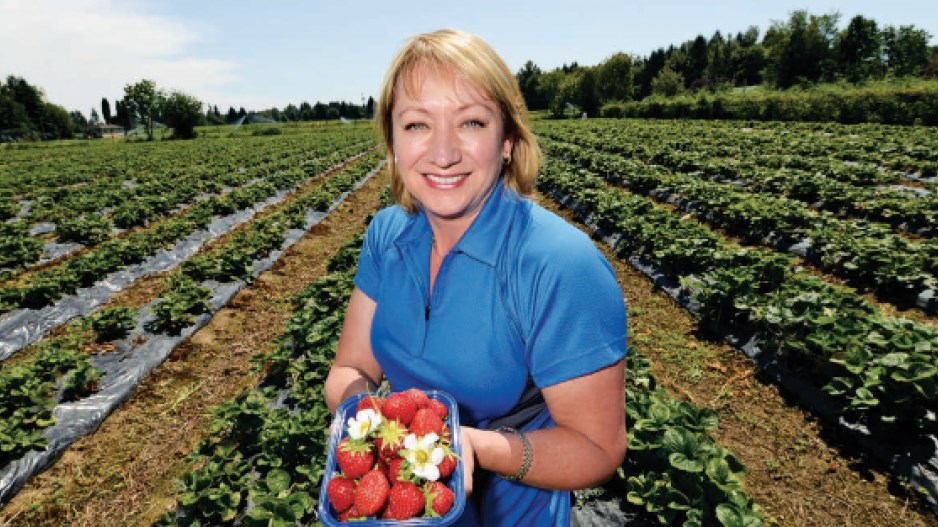The local strawberry season is almost over, but the debate over a new strawberry variety in B.C. has just begun.
Some B.C. farmers are ringing alarm bells over the increasing number of growers who are changing the variety of berry they're planting to extend the strawberry season and cultivate berries that have a longer shelf life.
That move, they say, threatens to erode the reputation of the province's strawberry industry.
“We could lose whatever we have – that niche in the marketplace,” W&A Farms owner Bill Zylmans told Business in Vancouver. “Our strawberries' selling feature is taste, juiciness and being red all through. That's what sets us apart. That's what gives us premium value and a return on our investment that we desire. We need that to stay in business.”
Zylmans grows 18 acres of traditional B.C. strawberries – fruit known as June-bearing or summer-bearing strawberries. The larger Albion strawberry, in contrast, is common in California. Its berries are larger, have a much longer shelf life and, even its growers admit, have a white interior that can taste a bit like cardboard.
While Zylmans fears that the rise of the Albion strawberry will confuse consumers and dilute B.C. strawberries' strong reputation, growers such as Driediger Farms Market owner Rhonda Driediger believe there's nothing wrong with growing both varieties of strawberry to lengthen the local strawberry season.
About 17 of Driediger's 23 acres of strawberries are the traditional B.C. variety, which has a season that ends in mid-July.
Her remaining strawberry acreage is Albion, which first bears fruit in late May before going dormant. Its second bloom bears fruit from July into September.
While Driediger was one of the pioneer growers of Albion berries when she planted them five years ago, she said smaller growers are increasingly jumping on the bandwagon to diversify production and to expand their customer base.
“In supermarkets, you have one or two guys working in produce trying to look after an entire section,” Driediger said. “They can't deal with [traditional B.C.] strawberries that have only one or two days' worth of shelf life. There has been a push-back from retail [against supplying traditional B.C. strawberries].”
But retailers deny that they've asked B.C. growers to switch from growing traditional B.C. strawberries, even though they only sell California strawberries outside Metro Vancouver and Fraser Valley strawberries to northern B.C.
“We've never gone to the farmers and said, ‘Grow a different variety,'” Overwaitea Food Group director of produce Jim Waites told BIV.
Overwaitea contracts a third party to deliver local strawberries directly to its Urban Fare, Cooper's Foods, PriceSmart Foods and Save-On-Foods stores in the Lower Mainland.
“By the time the [traditional B.C.] strawberries are picked and packaged and shipped into our distribution centre, loaded on a truck and transported to mainly the outlying areas in B.C. and Alberta, they're not salable.”
Kin's Farm Market director of operations Queenie Chu said her 29-market fruit store chain gets daily deliveries of freshly picked traditional B.C. strawberries because she wants the highest quality possible. California berries are also on offer, however, to give shoppers choice.




